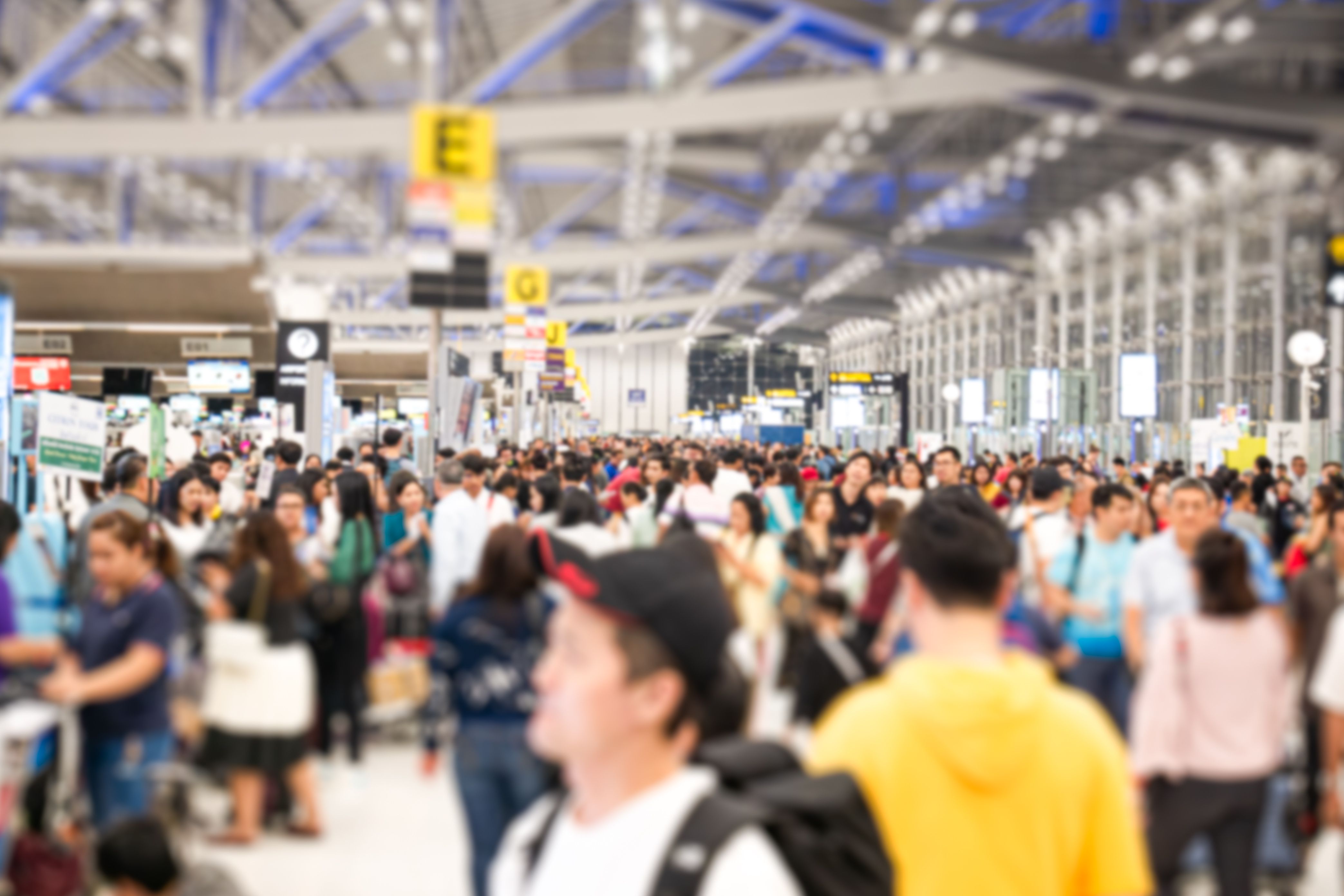Rigaku Receives Third Year of Funding from TSA
On April 1, Rigaku Analytical Devices announced that it was awarded a third year of funding for an optional three-year research and development contract from the Transportation Security Administration (TSA). This contract is part of the TSA’s Alarm Resolution Program (ARP) and aims to provide near-term improvements of security operations and capabilities for resolving explosive and non-explosive prohibited item alarms at airport checkpoints.
Blurred many passengers people of crowd anonymous walking at the airport. scene of airport with passengers activity. Terminal Departure Check-in at airport. Travel International and business concept. | Image Credit: © setthawuth - stock.adobe.com

Passenger volumes at airports across the United States are increasing. As of April 1, 243,370 additional passengers passed through TSA checkpoints, compared to last year, according to TSA data. Additionally, every day, the TSA screens approximately 1.3 million checked bags for explosives and other dangerous items (1). Formed in 2018, the TSA Alarm Resolution Program stems from the TSA identifying capability gaps in primary screening procedures and a need for evaluating new technology. The TSA uses millimeter-wave advanced imaging technology and walk-through metal detectors to screen passengers. The former approach safely screens passengers for metallic and non-metallic threats without physical contact. ARP technologies will purportedly improve upon current capabilities in different ways, such as increasing what types of substances can be identified.
Rigaku was first awarded a firm fixed-price contract in September 2021, with a one-year base period of performance with two option years being available, with the total funding opportunity equaling $1.6 million. Though they are not yet being used in TSA airports, the Rigaku CQL series of handheld Raman analyzers are in use around the world to analyze unknown substances. Using 1064 nm Raman technology, these analyzers are used to analyze dirty, colored, or mixed materials, all without fluorescence interference. Their libraries contain explosives, chemical warfare agents, hazardous materials, precursor chemicals, and more. As such, border security, law enforcement, and other public safety officials use this technology to identify chemical threats.
“The extension of this contract into its third year allows the Rigaku Raman technology continued field data collections to enhance and test the technology,” said Mathew Lynch, President of Rigaku Analytical Devices. “This is an exciting opportunity for Rigaku, and we look forward to addressing the changing threats to aviation security with our solutions.”
Reference
(1) Security Screening. U.S. Department of Homeland Security 2024. https://www.tsa.gov/travel/security-screening (accessed 2024-4-2)
Nanometer-Scale Studies Using Tip Enhanced Raman Spectroscopy
February 8th 2013Volker Deckert, the winner of the 2013 Charles Mann Award, is advancing the use of tip enhanced Raman spectroscopy (TERS) to push the lateral resolution of vibrational spectroscopy well below the Abbe limit, to achieve single-molecule sensitivity. Because the tip can be moved with sub-nanometer precision, structural information with unmatched spatial resolution can be achieved without the need of specific labels.